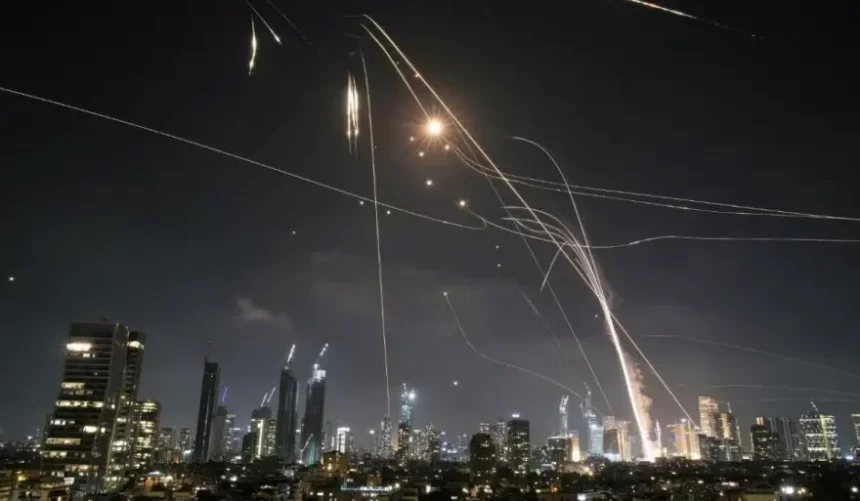In response to ongoing Israeli airstrikes, Iran has vowed to launch 2,000 missiles and drones, escalating regional tensions significantly.
In retaliation to ongoing Israeli airstrikes, the Islamic Republic of Iran has announced plans to launch a massive missile operation. According to the Iranian military, the operation will involve around 2,000 ballistic missiles and drones aimed at Israel, marking a significant escalation in the ongoing conflict.
This new offensive, described by Iranian officials as “20 times larger” than previous attacks, is named “Promise Fulfilled III.” The operation, carried out by the Islamic Revolutionary Guard Corps (IRGC), is expected to continue as long as necessary, signaling Iran’s commitment to counter Israel’s military actions.
The announcement of this large-scale operation comes after Israel conducted extensive airstrikes on Iranian military targets for the second consecutive day. Israeli forces targeted key facilities, including fighter jet hangars at Tehran’s Mehrabad Airport, missile sites, and other sensitive military infrastructure across multiple Iranian provinces.
Iran’s response to Israel’s aerial bombardments has been framed as a legitimate act of self-defense under Article 51 of the United Nations Charter. Furthermore, Iranian authorities have issued threats to any country aiding Israel in its military campaign, warning that such nations will become targets of Iranian retaliation.
As tensions mount, global concerns about the potential for a broader regional conflict have grown. U.S. and international diplomats have urged both sides to exercise restraint, with the United Nations calling for a halt to further escalation. Analysts have raised alarms about the immense pressure these missile attacks could put on Israel’s defense systems, particularly the Iron Dome and other missile defense systems.
The escalating conflict has fueled fears of a larger war in the Middle East. With Iran’s missile operation set to put immense pressure on Israeli defense capabilities, experts worry that this could trigger a new wave of violence, potentially involving more nations in the region.
The international community has urged both Israel and Iran to engage in dialogue to de-escalate the situation. However, with both sides preparing for further military actions, the prospects for a peaceful resolution remain uncertain. The coming days will be critical in determining whether the situation can be contained or if it will spiral into an even more destructive conflict.













